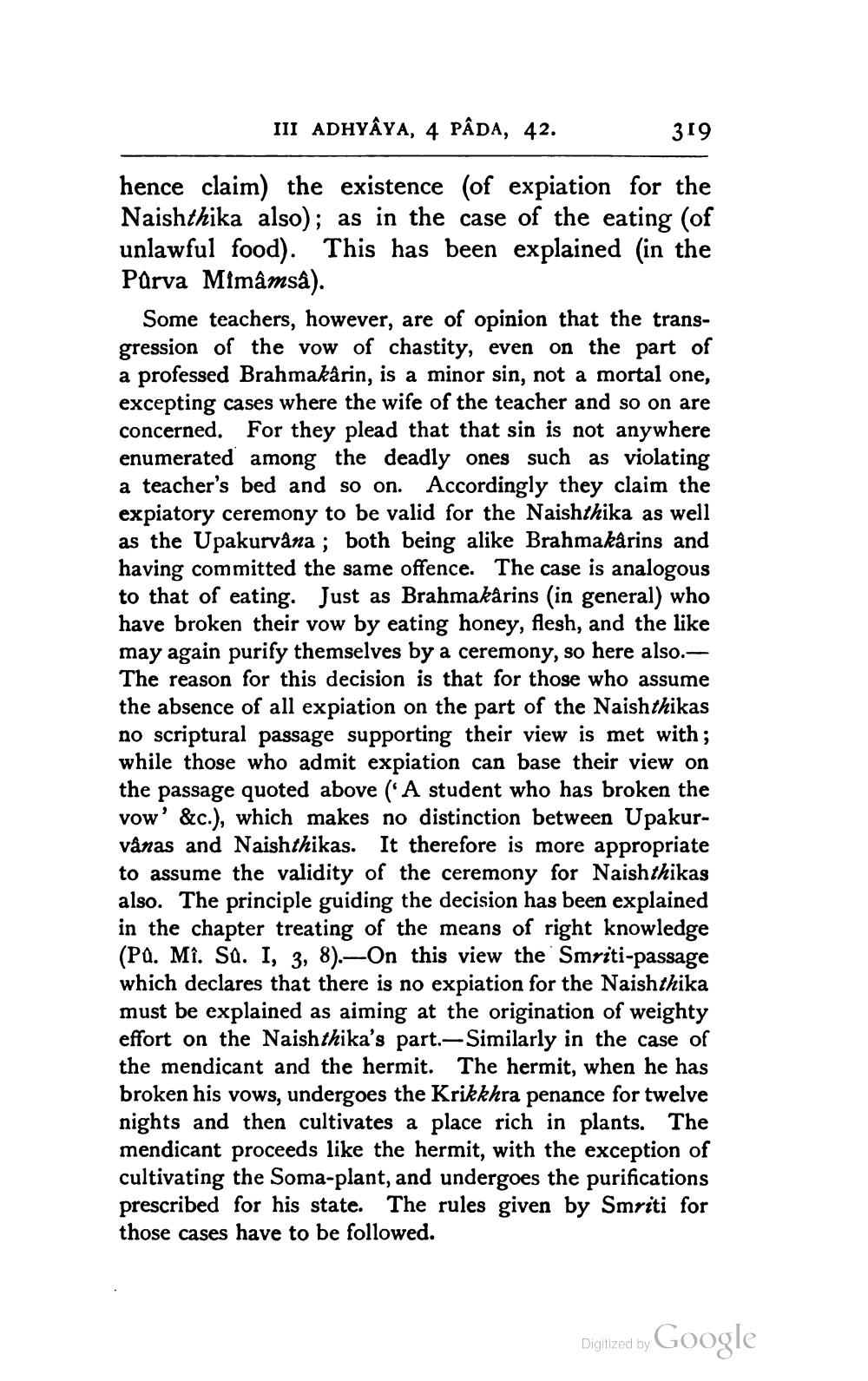________________
III ADHYAYA, 4 PÂDA, 42.
319
hence claim) the existence (of expiation for the Naishthika also); as in the case of the eating (of unlawful food). This has been explained in the Parva Mimâmsa).
Some teachers, however, are of opinion that the transgression of the vow of chastity, even on the part of a professed Brahmakârin, is a minor sin, not a mortal one, excepting cases where the wife of the teacher and so on are concerned. For they plead that that sin is not anywhere enumerated among the deadly ones such as violating a teacher's bed and so on. Accordingly they claim the expiatory ceremony to be valid for the Naishthika as well as the Upakurvana ; both being alike Brahmakarins and having committed the same offence. The case is analogous to that of eating. Just as Brahmakârins (in general) who have broken their vow by eating honey, flesh, and the like may again purify themselves by a ceremony, so here also.The reason for this decision is that for those who assume the absence of all expiation on the part of the Naish thikas no scriptural passage supporting their view is met with; while those who admit expiation can base their view on the passage quoted above (A student who has broken the vow' &c.), which makes no distinction between Upakurvånas and Naishthikas. It therefore is more appropriate to assume the validity of the ceremony for Naish thikas also. The principle guiding the decision has been explained in the chapter treating of the means of right knowledge (Pa. Mî. Sa. I, 3, 8).-On this view the Smriti-passage which declares that there is no expiation for the Naishthika must be explained as aiming at the origination of weighty effort on the Naishthika's part.- Similarly in the case of the mendicant and the hermit. The hermit, when he has broken his vows, undergoes the Krikkhra penance for twelve nights and then cultivates a place rich in plants. The mendicant proceeds like the hermit, with the exception of cultivating the Soma-plant, and undergoes the purifications prescribed for his state. The rules given by Smriti for those cases have to be followed.
Digitized by




